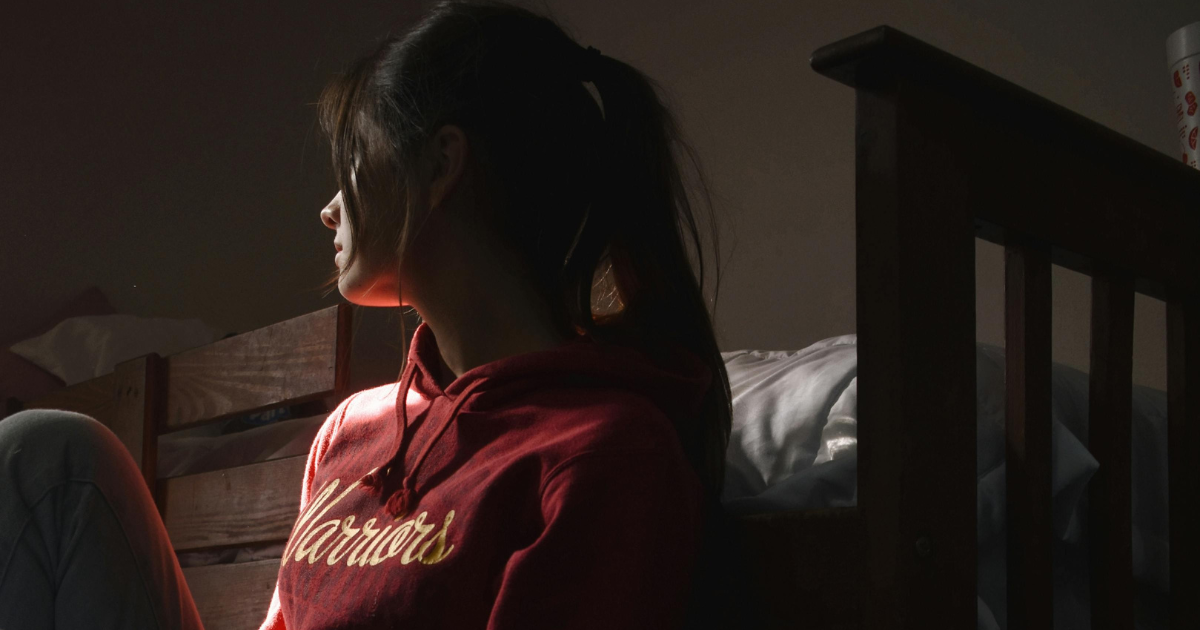Childhood trauma is a type of intense experience that numerous people go through without much awareness. The impact of childhood trauma on adult mental health can be extensive and long-lasting, and it affects the emotions, behavior, and quality of life in adulthood.
What Is Childhood Trauma?
Childhood trauma is the name given to any form of distress that either meets the developmental needs of a child or a distressing event in a child’s growing-up period.
The list of traumas from experiences can range from physical, sexual, or emotional abuse, neglect, bullying, and being a victim of or witnessing a traumatic event (car accident) with physical and emotional consequences.
Trauma can have a significant and major impact, instilling long-term psychological and emotional deficits that may lessen the ability to develop healthy relationships, stresses as well as emotion regulation.

Types of Childhood Trauma and Their Lasting Effects
The effects of childhood trauma can vary greatly depending on the nature and severity of the event. However, several types of trauma are prevalent and have significant consequences for adult mental health:
- Physical Abuse. From physical abuse by parents or carers in childhood to the hidden scars, both seen and unseen. Adult survivors of childhood abuse are unable to trust, struggle with emotional regulation, and can suffer physical health problems from the chronic stress response that abuse sets off.
- Emotional Abuse and Neglect. There is a condition where emotional abuse and neglect, the failure to meet emotional needs, or the intentional infliction of emotional suffering on a child are far more debilitating but just as common. Ultimately, this can result in a poor sense of self, anxiety, and difficulties with attachment. A lot of adult survivors of childhood trauma have these deep emotional wounds that are carried through their lives, affecting their emotional responses and relationships.
- Sexual Abuse. Sexual abuse, which is one of the most horrible childhood trauma, can have long-term psychological and emotional damage. Many adults who are survivors of sexual abuse often have a history of shame, guilt, PTSD, and inexperience in intimate adult relationships. Redefining childhood trauma in adulthood is to deal with these subconscious feelings and find specific trauma therapy.
- Loss of a Caregiver. Having lost a primary caregiver in death, separation, or abandonment before the age of primary caregiver, growing up with attachment and trust issues in adulthood. Survivors, in general, may suffer difficulty establishing any connections and an extreme level of fear of abandonment.
How Trauma in Childhood Affects Emotional and Psychological Development
Trauma experienced during childhood can have profound emotional and psychological effects, leading a person to the way they deal with stress (both in the long and short run), relate socially, and manage emotion as an adult. Trauma in children often isolates them from trust, from attaining secure attachments and emotional regulation. Eventually it causes adult life problems with emotional functioning.
The developing brain and nervous system of a child have no other option but to be traumatized (this adaptation is usually incredibly unhealthy). Emotional reactions such as intense fear, anger, or numbness persist through adulthood and prove problematic in managing your traits.
Childhood trauma and adult emotions are connected. In addition, unexported traumas will lead to being triggered or extreme mood swings, where a live moment should not be lived with these levels of emotions.
How Childhood Trauma Impacts Adult Mental Health
Childhood trauma does not just leave a scar that vanishes with time. It continues to impact mental health, behavior, and the emotional compass of a person till their death. In this section, we will explore how the past trauma of childhood affects adulthood, interfering with so many different parts of our lives.
The Link Between Childhood Abuse and Adult Mental Health Issues
Childhood abuse and adult issues are directly and thoroughly linked to the major adult diagnoses, anxiety, depression, PTSD, and (in extreme cases) personality disorders. This trauma from childhood can scar a person emotionally, causing struggles for most of their life.

Some people who were abused in childhood may battle with depression or feel useless for most of their lives. Flashbacks, nightmares, and unwanted distressing thoughts are a few symptoms of PTSD, usually thought to be triggered by survival from trauma. These symptoms can be crushing and prevent survivors from living a meaningful, healthy life.
The Long-Term Effects of Childhood Trauma on the Brain
The effects of childhood trauma on adults do not just interfere with emotional development and psychology, but it stays in your brain. The repercussions of childhood trauma on the developing brain can shape a person’s processing of emotions, stress responses, and social relationships later in life, even into adulthood.
Trauma triggers the body’s stress response, followed by cortisol, our stress hormone. If this stress response is turned too often on long-term, it morphs the brain structure in children, such areas as the hippocampus, amygdala, and prefrontal cortex. These changes become ingrained during adulthood and can impact learning, memory, decision-making, and emotional regulation.
Childhood Trauma and Emotional Dysregulation in Adulthood
Among many adults with a history of childhood trauma, emotional dysregulation is probably the most classic symptom they show. Some of these people may feel lost in high-emotional states or be emotionally unavailable, especially if stressed.
For example, the capacity to manage emotions may have been limited for most people who were raised in an abusive/neglectful environment, leading to a lack of ability to survive day-to-day minimum required tasks.
In adulthood, manifestations of emotional dysregulation can range from impulsive behavior to the inability to work out anger or sadness, often resulting in no happiness. These are typically the cause of failed relationships, work issues, and a lack of overall satisfaction with life, which is usually accounted for by emotional struggles.
Common Symptoms of Childhood Trauma in Adulthood
It is essential to identify developmental trauma symptoms in adulthood if one desires to know how childhood has sustained its impact on mental health across the ages. These symptoms are often so similar to other mental health disorders that an approach of sensitivity and care is necessary to deal with the issue.
Physical Health Issues Linked to Childhood Trauma
The body often holds onto trauma in physical ways. Adult survivors of childhood trauma are more likely to experience chronic physical health issues, including:
- Chronic pain or illnesses like fibromyalgia.
- Long-term stress and cortisol release cause heart disease.
- Chronic inflammation from trauma leads to autoimmune disorders.
This physical toll is the body’s way of responding to unresolved emotional pain and chronic stress.
Mental Health Struggles: Anxiety, Depression, and PTSD
Survivors of childhood trauma often suffer from mental health disorders like anxiety, depression, and PTSD. Trauma therapy for adult mental health can be beneficial for dealing with this trauma. What many face, though, are overwhelming sadness, fear, or hopelessness, which makes it hard to do anything.
Impact of Childhood Trauma on Adult Relationships
Childhood trauma has broad ramifications, and one of the most affected is relationships. Adult survivors of childhood sexual abuse often struggle to maintain healthy, stable, and secure adult relationships because of problems with trust, emotions, and attachment. Those challenges can make romantic relationships, friendships, and family dynamics difficult.
FAQs
How does childhood trauma affect adult mental health?
Childhood trauma can cause long-lasting effects on emotional regulation, mental health, and relationship-building. It can lead to issues such as anxiety, depression, PTSD, and emotional dysregulation in adulthood.
What are the common symptoms of childhood trauma in adulthood?
Common symptoms include anxiety, depression, PTSD, chronic pain, difficulty with relationships, and emotional dysregulation.
Can childhood neglect affect adult mental health?
Yes, childhood neglect can have a significant impact on adult mental health, leading to issues with trust, attachment, and emotional regulation.
What therapy is effective for childhood trauma?
Effective therapies for healing childhood trauma in adults include trauma-focused Cognitive Behavioral Therapy (CBT), Eye Movement Desensitization and Reprocessing (EMDR), and somatic therapies.
When should someone seek help for childhood trauma?
If trauma symptoms, such as difficulty managing emotions, chronic pain, or relationship problems, are affecting daily life, it’s vital to seek professional help.





